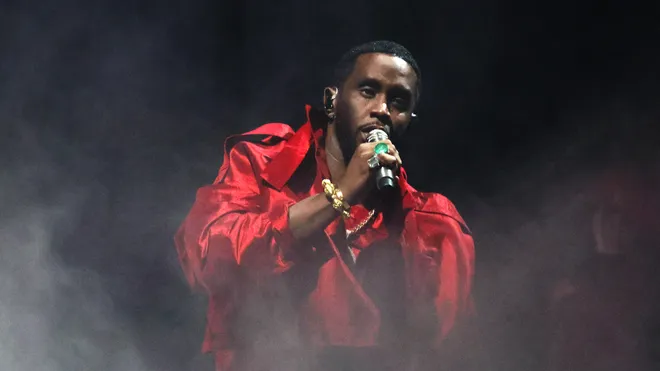Sean 'Diddy' Combs asks judge to reject lawsuit alleging rape of 17-year-old girl in 2003
Sean "Diddy" Combs has filed to dismiss a lawsuit alleging he and former Bad Boy Entertainment executive Harve Pierre gang raped a 17-year-old girl in a New York music studio in 2003.
Combs' legal team filed the motion to dismiss on Friday in a New York federal court, calling the allegations "false and hideous" and claiming the suit was filed too late under the law.
Combs' lawyer, Jonathan Davis, called the suit a "stunt" and said it "fails to state any viable claim."
The Jane Doe "cannot allege what day or time of year the alleged incident occurred, yet purports to miraculously recall the most prurient details with specificity," the motion claims.

The lawsuit, first filed by Doe in December and amended in March, accused Combs, Pierre and a third unnamed assailant of raping her when she was a junior in high school. While at a lounge in Michigan, she said she met Pierre, who told her he was "best friends" with Combs.
Need a break? Play the USA TODAY Daily Crossword Puzzle.
After calling Combs to prove their relationship, the woman alleged Pierre and Combs convinced her to take a private jet to Daddy’s House Recording Studio, owned and operated by Diddy. Combs, Pierre and the unnamed third assailant then plied her with drugs and alcohol, the suit claimed, and "viciously" gang raped her.
The complaint included photos of Doe that she claimed were taken at the studio that night, including one where she's seen sitting on the lap of Combs, then 34.
Diddy investigated for sex trafficking:A timeline of allegations and the rapper's life, career

The lawsuit is one of several filed against the music mogul in recent months, including suits by ex-girlfriend Cassie and "The Love Album" producer Rodney "Lil Rod" Jones Jr.
Doe's claim is "time-barred" and expired in 2010 because it was filed under New York City's Gender-Motivated Violence Protection Law, which has a "seven-year statute of limitations," Diddy's latest filing says.
Combs' filing requests that the case be "dismissed now, with prejudice," meaning it cannot be refiled, in order to protect Combs and his companies "from further reputational injury and before more party and judicial resources are squandered."
In March, a New York federal judge denied Doe's request to remain anonymous in her lawsuit against Combs and Pierre if the lawsuit were to move forward. The judge said the accuser did not provide specific examples of how she would be affected, thus the court cannot "rely on generalized, uncorroborated claims" of how disclosing her identity would have consequences.
Contributing: Anika Reed and Naledi Ushe
Disclaimer: The copyright of this article belongs to the original author. Reposting this article is solely for the purpose of information dissemination and does not constitute any investment advice. If there is any infringement, please contact us immediately. We will make corrections or deletions as necessary. Thank you.







